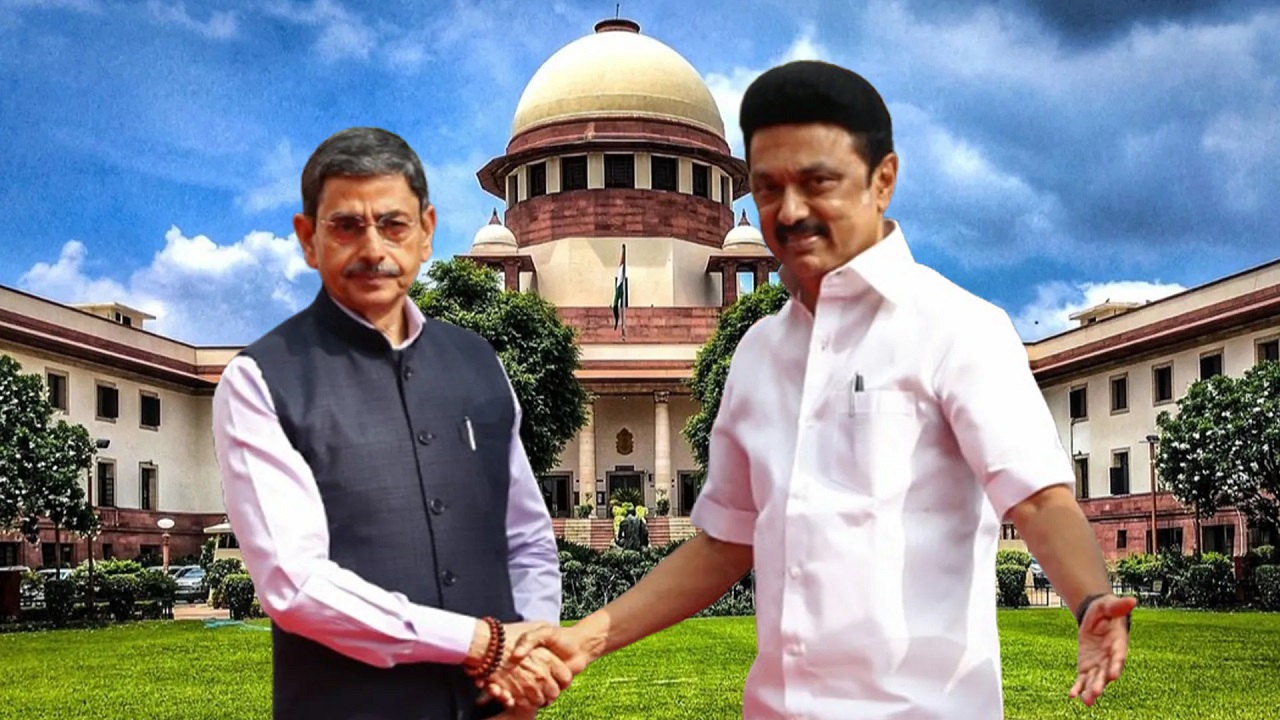Governor’s Assent and the Spirit of Federalism: Supreme Court’s Timely Intervention
Context
In a significant development, the Supreme Court of India pulled up the Governor of Tamil Nadu for the unconstitutional delay in granting assent to 10 Bills that had been re-enacted by the State Assembly. These delays prompted a constitutional crisis, leading the Court to not only deem the Bills assented but also lay down clear timelines for gubernatorial actions in the future.
Case Title
The State of Tamil Nadu v. The Governor of Tamil Nadu & Another
Constitutional Provisions Involved
-
Article 200: When a Bill is passed by the State Legislature and presented to the Governor, the Governor may:
-
Give assent
-
Withhold assent
-
Return the Bill (except Money Bills) for reconsideration
-
Reserve it for the President’s consideration
-
-
Proviso to Article 200: If a Bill is returned and re-passed by the legislature, the Governor must not withhold assent.
-
Article 163: The Governor is required to act on the aid and advice of the Council of Ministers, except in matters where discretion is explicitly permitted.
-
Article 142: Empowers the Supreme Court to pass orders necessary for complete justice in any matter.
Key Issues with Governor’s Role in Bill Assent
-
No timeline prescribed under Article 200 → allows for indefinite delay (often called “pocket veto”).
-
Political misuse in Opposition-ruled states → Governors accused of obstructing legislative processes.
-
Lack of accountability → No requirement to disclose reasons for withholding assent.
-
Growing legal challenges from states like Kerala, Telangana, and Punjab on similar grounds.
Major Outcomes of the SC Judgment
-
Declared the delay unconstitutional: The Court ruled that the Governor’s indefinite withholding or referring Bills to the President after re-passage was legally impermissible.
-
Bills deemed to have received assent: Invoking Article 142, the Court deemed all 10 re-enacted Bills to have received gubernatorial assent.
-
No absolute veto or indefinite delay: The Governor cannot reserve Bills or sit on them indefinitely, especially after re-enactment.
-
Time-bound framework established:
-
1 month to assent or reserve a Bill based on Cabinet advice.
-
3 months if the Governor intends to withhold assent against advice.
-
1 month to grant assent to re-passed Bills.
-
3 months maximum to reserve a Bill for the President (with justification).
-
-
Cabinet advice is binding: Except where discretion is constitutionally permitted (e.g., Bills affecting High Courts), the Governor must follow Cabinet advice.
Significance of the Judgment
-
Strengthens federalism: Reaffirms the legislative authority of elected state governments.
-
Ends arbitrary delays: Prevents executive overreach by ensuring Governors cannot block laws through inaction.
-
Clarifies constitutional intent: Affirms that the term “shall” in Article 200 implies a mandatory duty, not discretion.
-
Upholds democracy: Reinforces that state legislatures represent the will of the people and must not be undermined.
-
Sets national precedent: Provides legal clarity and consistency for similar cases in Kerala, Punjab, Telangana, and other states.
Conclusion
This landmark ruling by the Supreme Court marks a turning point in Centre-State relations, ensuring that democratically elected governments are not subverted by constitutional functionaries. It reasserts the principle that constitutional morality must guide all offices, including that of the Governor. As Dr. B.R. Ambedkar rightly said, “The Constitution is only as good as those who are called to implement it.” This judgment gives that statement renewed relevance in India’s contemporary constitutional practice.




Comments (0)